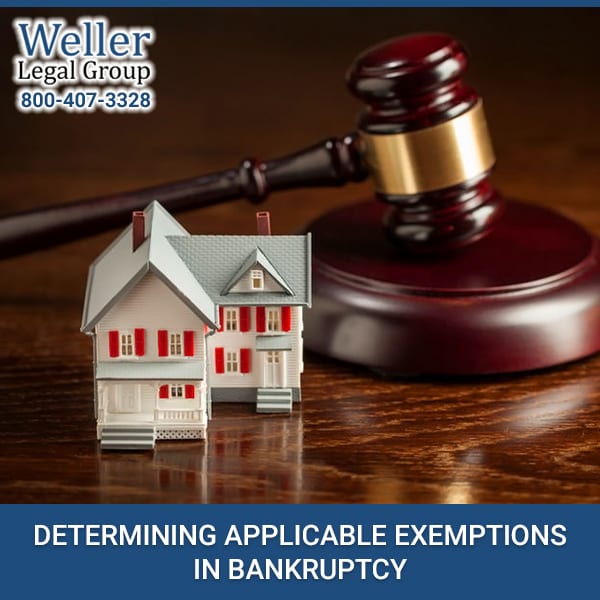 STEPS
STEPS
1. Bankruptcy Code Section 522 states that in determining what Exemptions the Debtor shall apply, whether Federal or State Exemptions, one must refer to Bankruptcy Code Section 522(b)(3)(A). The applicable Bankruptcy Section states that the Domicile of the Debtor for the 730 days preceding the filing of the Bankruptcy Petition determines the applicable Exemption. Domicile is generally defined as the place where the Debtor intends to make his or her permanent home.
2. If the Debtor’s Domicile was not in a single State for the 730 days preceding the filing of the Bankruptcy Petition, then the applicable Exemptions are those provided by the Domicile of the Debtor for the period which is 730 days preceding the filing of the Bankruptcy, in addition to the 180 days preceding the 730 days.
3. If the Debtor’s Domicile was in multiple States for the 180 days preceding the 730 days, before the Bankruptcy filing, then the applicable Exemption is determined by the Domicile which the Debtor retained for the greater part of that 180 day period. This is generally defined as more than 91 days, however, if the Debtor had 3 or more Domiciles, then the applicable Exemption is determined by the Domicile of the Debtor for the greater part of that period.
4. Determine which Exemptions are applicable. Some States only the Debtor to use its Exemptions. These States are referred to as opt out States. Some States allow the Debtor to use either the State or Federal Exemptions. Some States only use the Federal Exemptions.
5. Investigate the applicable State Exemptions. You must read the actual Exemption Statutes of the applicable State. Some Exemption Statutes only apply to residents of that State. Many Exemption Statutes, particularly in reference to the Homestead, are not extraterritorial. In such instances, one may not employ such Exemptions to the protection of the subject asset or assets.
6. If the Debtor, in application of the old State’s Exemptions, is left without any usable Exemptions because the State Exemptions only apply to residents or property within the State, and the opt out option only applies to residents of the old State, then the Debtor may invoke what is referred to as the savings clause. The savings clause holds that “if the effect of the domiciliary requirement” under Bankruptcy Code Section 522(b)(3)(A) “is to render the debtor ineligible for any exemption”, then the Debtor may employ the Federal Exemptions.
In such an instance, in the opinion of this author, if the Debtor is able to use ANY Exemption under the laws of the old State, then the Debtor may not invoke the savings clause, and employ the Federal Exemptions. An excellent article entitled “Homestead Exemptions” by William E Brewer of the Brewer Law Firm in Raleigh, North Carolina maintains that even if the Debtor is able to employ one exemption under the laws of the old State, the Debtor is unable to employ the savings clause, and apply the Federal Exemptions. Writes Mr. Brewer, if the Debtor is able to exempt a pig under the old States laws, but can apply no other Exemptions, then one better enjoy that pig.
Refer to Bankruptcy Code Section 522(b)(3)(C) which states, “If the effect of the domiciliary requirement under subparagraph (A) is to render the debtor ineligible for any exemption, the debtor may elect to exempt property that is specified under subsection (d).” Subsection d refers to the Federal Bankruptcy Exemptions.
The preceding article is the author’s opinion as to the proper application of the Bankruptcy Exemptions when one is apply the laws of the old State pursuant to the 730 day rule. Other practitioners, Bankruptcy Judges, and Trustees may have diverging opinions.
If the Debtor is left without an Exemption but wishes to retain or protect the applicable asset, the debtor nevertheless has remedies. For example, the Debtor may file a Chapter 13 Bankruptcy and pay his unsecured creditors an amount equivalent to the value of the asset, for which there is no applicable exemption. In a Chapter 13 Bankruptcy, the Debtor must meet the Liquidation Test, which holds that a Debtor in Chapter 13 Bankruptcy must pay his or her unsecured creditors an amount equivalent to which such creditors would receive if the Debtor was to file a Chapter 7 Bankruptcy.
Picture Credit: 123rf.com

